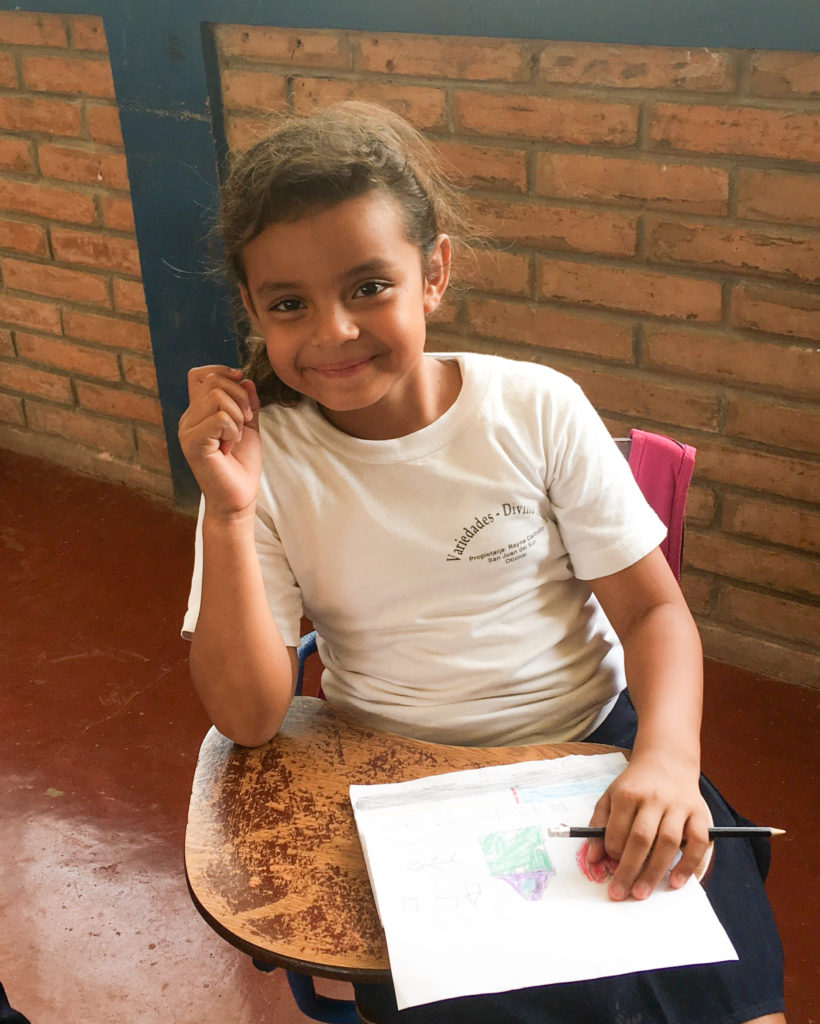OUR APPROACH
The Problem
“Education should be a means to empower children and adults alike to become active participants in the transformation of their societies.”
(UNESCO, 2017)
Many youth in Latin America face barriers to learning such as outdated curricula, poor physical infrastructure, inadequate teacher preparation and support, and lack of access to new technologies. While there are programs that aim to improve the quality of education being implemented, the region’s political and economic unrest often affect their delivery of services.
The region benefits from a network of creative and resilient individuals working towards positive change to address important education needs at the local community level. ConnectED harnesses the energy and commitment of these individuals as local leaders in education by nurturing, building, and mobilizing their skills and strengths. As ConnectED Fellows, they receive access to resources and support, and work alongside teachers and mentors to create projects that meet the changing and growing priorities of their communities.
By improving local learning outcomes, ConnectED Fellows make it possible for the next generation of leaders to dream without boundaries and transform their own societies.
What We Do
ConnectED believes that by fostering local education leadership and collaboration, we can equip youth and rural communities with the skills and opportunities they need to drive change and reduce outbound migration.
IF
dynamic education leaders are supported to effect change through capacity development, resources, and locally driven solutions,
THEN
they can address educational barriers in their communities,
Which
will result in improved learning outcomes and prospects for youth, while also providing education leaders with skills, partnerships, and relevant experience to enhance their livelihoods,
Ultimately
creating thriving communities.
HOW WE DO IT
We are passionate about locally-driven solutions, and at the heart of our work are the ConnectED Fellows. The Fellows model was created in partnership with local communities to support education leaders to improve access, quality, and relevance of education for youth. With the right support networks, tools, and leadership development, Fellows become change agents who use human-centered design to engage and empower others in addressing education needs. We provide our Fellows with access to resources and capital, capacity development and mentoring and networking opportunities.
Phase 1
Identify local Fellows
We work with local partners to identify and select rural education leaders to serve as Fellows.
Phase 2
Develop local capacity and leadership
We provide our Fellows with training in leadership and project management, and engage our partners and education mentors to further support our Fellows’ technical capacity needs.
Phase 3
Assess community needs
We support Fellows in engaging key stakeholders to identify critical education challenges in their community.
Phase 4
Generate project designs
We collaborate closely with Fellows in developing project work plans, setting goals, and designing responsive and relevant education projects.
Phase 5
Implement projects
Together with Fellows, local partners, and community stakeholders, we pilot and adaptively manage local small-scale education initiatives.
Phase 6
Monitor, evaluate, and scale impact
We monitor and evaluate the outcomes of Fellows’ projects to gain insights, share them with our network, and apply what we learn to scale successful initiatives to new locations.
Phase 7
Fellows Network
We continue to support our Fellows to make connections for leadership development and project implementation in education and beyond, and facilitate connections for Fellow Alumni to mentor new Fellows.

Working With Communities
Get Involved
How can you make a difference?
Give.
You can make the transformative power of education possible through a simple donation.
Volunteer.
Your talents and skills can help support our organization and the work of our Fellows.
Collaborate.
You can join us in improving education outcomes in Central America.
